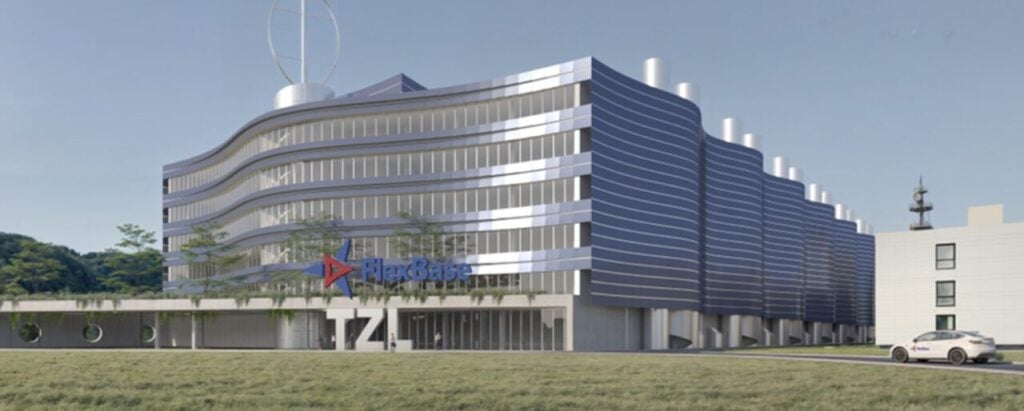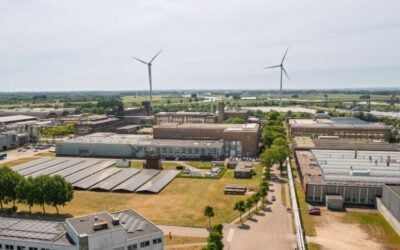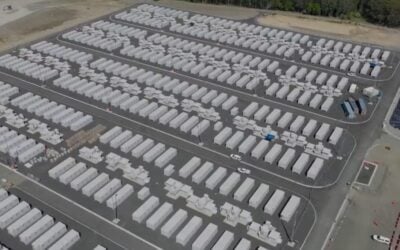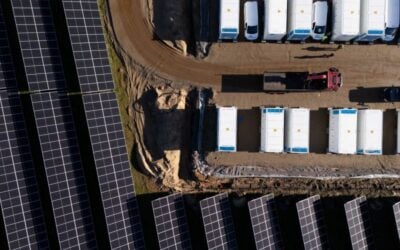
FlexBase Group will start construction on a data centre plus 800MW/1,600MWh flow battery in Switzerland imminently, the firm claimed, explaining to Energy-Storage.news how and why.
The private equity-backed company has received local construction approval for the Laufenburg
Technology Center (TZL), which will house a data centre plus a redox flow battery system, which would most likely be the largest of its kind in the world.
Approval was announced in early April with official groundbreaking said then to to take place in the next few weeks, while commissioning is scheduled for 2028. It will be built at the ‘Star of Laufenburg’, a substation with 41 cross-border power lines connecting the grids of Switzerland, Germany and France.
The ‘world’s largest and most modern redox flow battery storage system’ will be built on a 20,000m2 footprint with a power output of 800MW and an energy storage capacity of more than 1,600MWh, the company said. The system will consist of a liquid with 75% water content supplemented by 25% of a metallic electrolyte, ‘typically vanadium or bromine’, the company said.
Try Premium for just $1
- Full premium access for the first month at only $1
- Converts to an annual rate after 30 days unless cancelled
- Cancel anytime during the trial period
Premium Benefits
- Expert industry analysis and interviews
- Digital access to PV Tech Power journal
- Exclusive event discounts
Or get the full Premium subscription right away
Or continue reading this article for free
The project was revealed to the public in September 2024, the company at the time describing the storage system as 500MW-plus using a ‘non-flammable’ unnamed technology.
‘About time we introduce flow batteries at a bigger scale to Europe’
The largest flow battery in Europe is most likely in the low double-digit megawatt-hours. Meanwhile, the largest flow battery in the world, in China, is 175MW/700MWh.
Energy-Storage.news asked FlexBase for more information about the technology provider, financing and why it had decided to go so large. The firm wouldn’t disclose which company would provide the flow battery tech.
“According to research studies and calculations, a flow-battery gets less pricey if you make it bigger (levelised cost of storage/LCOS). In other words, the perfect scalability of the flow-battery allows us to build it bigger which, together with the long expectation of durability, makes it more and more comparable to investing in other, less expensive technologies such as lithium batteries,” the spokesperson said.
“Next to the crucial benefits such as being non-flammable, non-explosive and having easy maintenance requirements, we’re seeing flow-batteries perform in Asia – it’s about time we introduce them at a bigger scale to Europe.”
Meanwhile, financing for the project will come from private investors and family offices in the region of Germany, Austria, Switzerland and Lichtenstein, they added.
Reducing the capex of flow battery technology by scaling it will be crucial given the past few years has seen consistent and substantial cost reductions for lithium-ion technology, to the extent that its proponents are now claiming it is cost-effective for 8-10 hour durations, and in the future even more.





